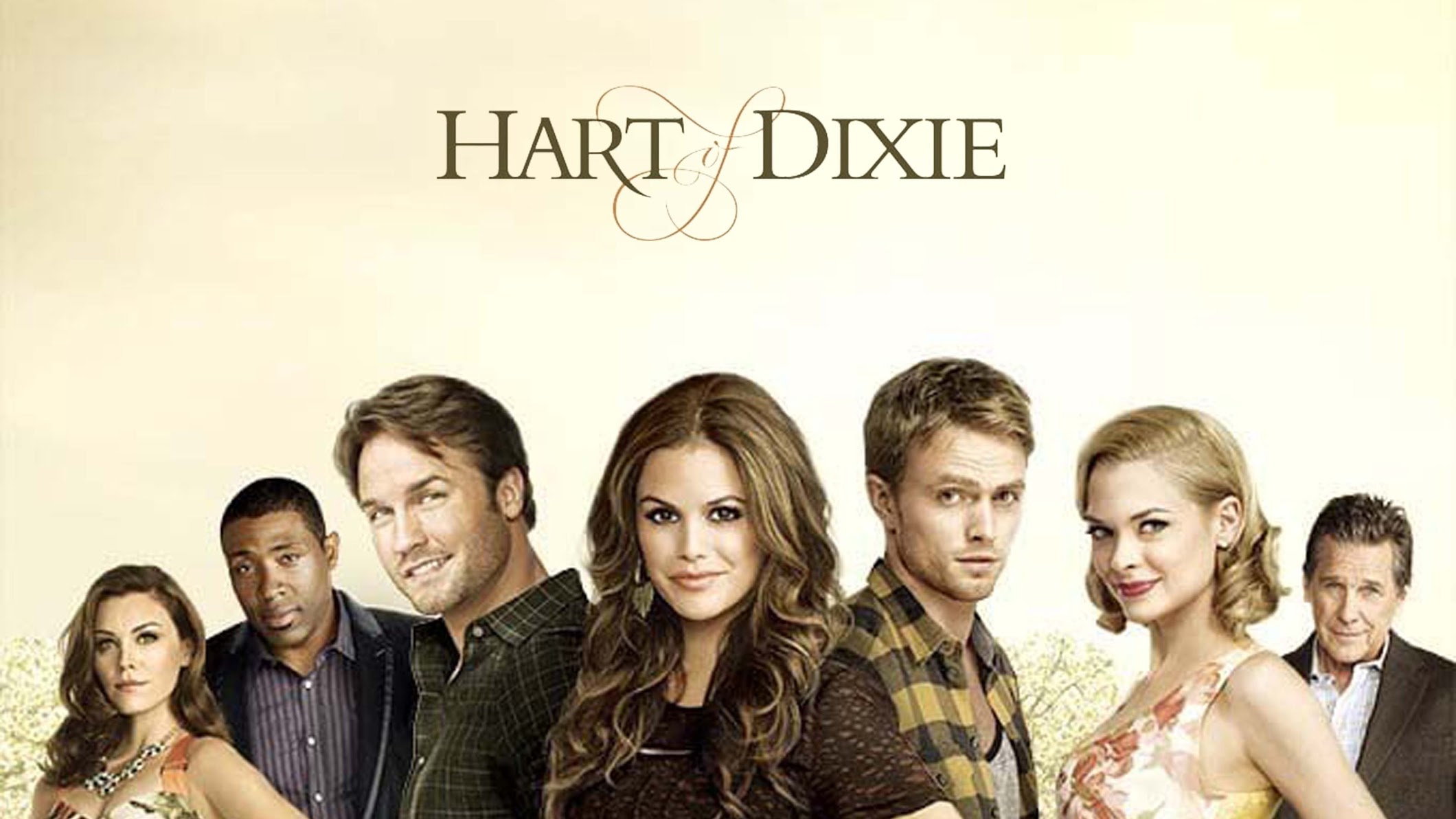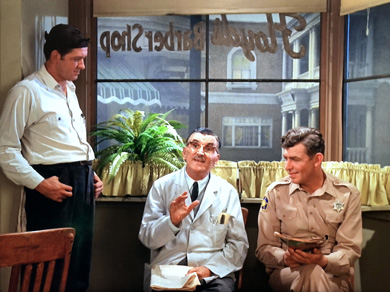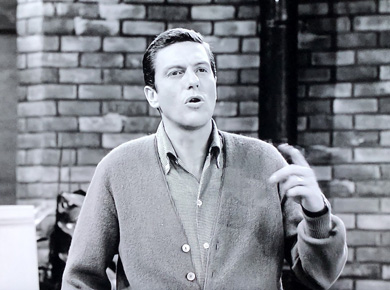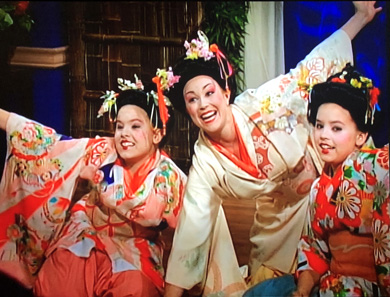The Mikado
As one of most popular of Gilbert and Sullivan’s operettas, The Mikado is one of those most commonly referred to in popular culture. It’s difficult to say whether, however, H.M.S. Pinafore, The Pirates of Penzance or The Mikado receives the most cultural references.
Frasier
There were multiple references to Gilbert and Sullivan in the Frasier television series.
In Leapin’ Lizards, the fourth episode of the third season, which aired on October 31, 1995, Frasier receives a phone call at home in which he is asked to sing a verse from “Three Little Maids”. Frasier sings a verse in falsetto. It turns out that the caller was Frasier’s fellow broadcaster and sometime nemesis, Bulldog, who was playing a practical joke on Frasier, broadcasting Frasier’s singing as part of a stunt to promote ratings.
In They’re Playing Our Song, the thirteenth episode of the seventh season, which aired on January 13, 2000, Frasier proposes a new theme song for his radio show.
Although it’s not included in the video, Daphne Moon comments on Frasier’s theme song with the response, “It’s like Gilbert and Sullivan, only frightening.“
In Fathers and Sons, the twenty-second episode of the tenth season, which aired on May 6, 2003, Frasier, Niles, and Leland Barton sing “I am the Very Model of a Modern Major General” together, leaving Martin to wonder if Leland, his wife’s research assistant, could be his boys’ father.
Later in the episode, Martin, who is reassured that Frasier and Niles are his sons, enters their home, sees the two together at the piano and proudly says, “My boys.” Then, when they begin singing “Tit Willow,” in exasperation, Martin puts on his headphones and turns on the television.
The Crown
The Crown is Netflix original series which follows the political rivalries and romance of Queen Elizabeth II’s reign and the events that shaped the second half of the 20th century. In Season 3, Episode 6, titled “Tywysog Cymru,” broadcast on November 17, 2019, the Queen decides to take Prince Charles away from university at Cambridge and send him, for three months, to attend university in Wales, to study and learn the language prior to his investiture as Prince of Wales. In an early meeting with his Welsh tutor, Tedi Millward, Charles is overwhelmed by the complexity of Welsh pronunciations, and compares it to attempting Gilbert’s tongue twisting lyrics as he recites, “To sit in solemn silence in a dull dark dock …” His tutor is not amused. Later, the two become friends and Charles expresses sympathy with Millward’s Welsh nationalism. This moment can be seen at the episode’s 33:30 minute mark.
The Good Wife
The Good Wife is a legal and political television drama which focuses on the character of Alicia Florrick, the wife of a Chicago state’s attorney, who returns to her career in law following a series of scandals involving her husband. In Season 7, Episode 21, titled “Verdict,” broadcast on May 1, 2016, family law attorney, David Lee, is listening to “I’ve Got a Little List” on his phone with headphones, oblivious to the fact that the firm’s offices are being torn down around him. These moments can be seen at the episode’s 8:00 and 12:20 minute marks.
Chariots of Fire
The 1981 film, Chariots of Fire includes multiple Gilbert and Sullivan references. The protagonist, Harold Abrahams, is a devoted Gilbert and Sullivan fan. In the course of the film he attends a D’Oyly Carte Opera Company production of The Mikado in a scene that features “Three Little Maids from School Are We.”
During the “interval” Abrahams asks out Sybil, the woman playing Yum Yum, and by the end of the film … yes, he did go and marry Yum Yum (Yum Yum)!
The film features “He is an Englishman” from H.M.S. Pinafore, “With Catlike Tread” from The Pirates of Penzance, “The Soldiers of Our Queen” from Patience, and “There Lived a King” from The Gondoliers.
Family Guy
Family Guy was an adult animated sitcom that has aired from 1999 to the present. The show centered on the Griffins, a family consisting of parents Peter and Lois, their children Meg, Chris, and Stewie, and their anthropomorphic pet dog, Brian. The show’s humor included cutaway gags that often lampooned American culture. In season 6, in episodes 5, titled Lois Kills Stewie, the character of Stewie sang a parody of the “I’ve Got a Little List.”
The Muppet Show
The first season of The Muppet Show, episode twenty, broadcast on November 20, 1976, featured Rowlf the Dog and Sam the Eagle singing “Tit Willow”
The Animaniacs
The Animaniacs was Steven Spielberg’s animated comedy television series, which aired on from 1993 to 1998. Featuring three main characters, Yakko, Wakko and Dot, it was a variety show, with short skits, music, character catchphrases, and humor directed at an adult audience.
One episode from the first season was titled, Hello Nice Warners / LA Behemoth / Little Slappy From Pasadena, presented a version of Three Little Maids used as an audition piece, at the 3:00 minute mark.
The Producers
In Mel Brooks’ comic 1968 film, The Producers, failed Producer Max Bialystock and his partner “Leo” Bloom scheme to stage a Broadway musical that’s so awful, it’s guaranteed to fail. They’ve realized that they can make more money by staging a failure than a success. They select as their piece, the horribly tasteless musical, “Springtime for Hitler.” Their attempt at failure, of course, is a failure! “Springtime for Hitler” is a Broadway hit!
In 2001, Brooks adapted his 1968 film as an actual Broadway musical, which in turn, in 2005, became a film based on the musical, based on the original film. There is almost something Gilbertian in that chain of events!
In both versions of the film, during the auditions for “Springtime for Hitler,” a tenor attempts to audition for the show by singing “A Wandering Minstrel, I.” Bialystock cuts him off with a “Thank you!” after he’s barely sung a line! The following video is from the 2005 film.
Foul Play
In the 1978 film, Foul Play, Goldie Hawn and Chevy Chase race to the San Francisco Opera House in order to foil a plot to assassinate the Pope, who is attending a performance of The Mikado. The scenes of their mad dash to the opera house are intercut with momentary scenes from the operetta, conducted by Dudley Moore, beginning at the 1:36:00 mark:
https://www.youtube.com/watch?v=dQYRrd7KI24
Hamilton
Hamilton is the extraordinarily popular Broadway musical about the life of American Founding Father Alexander Hamilton, with music, lyrics and book by Lin-Manuel Miranda. The show was inspired by the 2004 biography Alexander Hamilton, by historian Ron Chernow, and has achieved both critical acclaim and box office success. An admitted “musical theater nerd,” Miranda includes a number of subtle references to other musical theater works in Hamilton, from classics such as South Pacific, West Side Story and Camelot. In Act I, Miranda makes an obvious reference to The Pirates of Penzance when George Washington introduces himself in, “Right-Hand Man,” during which he states, “Now I’m the model of a modern major general, the venerated Virginian veteran whose men are all lining up to put me up on a pedestal.” Earlier in the musical, the characters of Angelica, Eliza and Peggy Schuyler enter and introduce themselves in the song, “The Schuyler Sisters.” While this song does not quote Gilbert and Sullivan directly in either its lyrics or music, the song has been compared to The Mikado’s “Three Little Maids From School Are We” in spirit, as a song that introduces each of the three young women individually and in which they sing of their release from protective confines into the wonders and excitement of the world beyond.
The Andy Griffith Show
While attending the University of North Carolina, Chapel Hill, and studying for a bachelor’s degree in Music, Andy Griffith auditioned and was cast as Don Alhambra Del Bolero in the college’s production of The Gondoliers. He went on in subsequent years to play Sir Joseph Porter and Ko-Ko in the college’s productions of H.M.S. Pinafore and The Mikado.
The Andy Griffith Show ran for eight highly rated seasons, from 1960 to 1968. In Season 7, Episode 9, first broadcast on November 14, 1966, and titled The Senior Play, Andy’s girlfriend, Helen Crump, is planning the annual school play when the senior students propose that they do a musical. While discussing the matter in Floyd’s Barbershop, Floyd Lawson suggests to Andy and Goober Pyle that the students should do The Mikado. He goes on to say that it was the play they had done, in which he’d appeared, when he was in high school. Floyd says that it’s a wonderful play and that the songs are beautiful. Encouraged by Goober, Floyd goes on the describe The Mikado:
Goober: What’s it about?
Floyd: Well, it all took place I this little town called Titipu.
Goober: Come on, Floyd, be serious.
Floyd goes on to describe the plot and characters, and finally begins to sing “A Wandering Minstrel, I.” At this point, Andy leaves the barbershop as quickly as he can while Goober grows more and more fascinated, attempting to sing along with Floyd.
The Dick Van Dyke Show
The Dick Van Dyke Show ran for five seasons, from 1961 to 1966. In Season 2’s, Episode 14, titled, Somebody Has to Play Cleopatra, first broadcast on December 26, 1962, Dick Van Dyke’s character, Rob Petrie, has been drafted to direct the annual community fund-raising talent show with his neighbors. At the end of the episode, Rob suggests that next year, they do a show using the music of Gilbert and Sullivan, which is “more familiar to the general public” and “lends itself more easily to parody.” He extemporaneously sings, “The crabgrass that blooms in the spring, tra, la, all grows on my New Rochelle lawn.” His parody is very well received by the head of the talent show committee and Rob suddenly realizes that he’s just volunteered to direct next year’s show. At the end of the episode, Rob says that he doesn’t really mind directing again and suggests to his wife Laura, played by Mary Tyler Moore, that they do a version of The Mikado. He goes on to say that he played Nanki-Poo in high school, to which Laura replies, “Can I play Yum Yum?” While Rob replies that they probably need to hold auditions, one could safely assume that Laura will get the part!
The Parent Trap
In the 1961 film, The Parent Trap, identical twins Sharon McKendrick and Susan Evers, both roles played by Hayley Mills, meet at Miss Inch’s Summer Camp for Girls, unaware that they are sisters. Their identical appearance initially creates rivalry, and they pull pranks on each other, culminating in the camp dance being ruined. Miss Inch asks the two girls if they’re familiar with Gilbert and Sullivan and declares that their punishment should “fit the crime.” She decides that they must live together in an isolated cabin and eat together at an “Isolation Table” for the remainder of the camp season. As a result of their spending time together, they eventually realize that they are twin sisters and that their parents, Mitchell “Mitch” Evers, played by Brian Keith, and Margaret “Maggie” McKendrick, played by Maureen O’Hara, divorced shortly after their birth, with each parent having custody of one of them. The twins scheme to reunite their parents and eventually succeed as the couple realizes that they are still in love and decide to remarry.
Henry Danger
Henry Danger is an American comedy television series that aired on Nickeloen from July 26, 2014 to March 21, 2020. Henry Hart, played by Jace Norman, is a 13-year-old boy who lives in the town of Swellview. He lands a part-time job as Kid Danger, the sidekick of Swellview’s well-known superhero Captain Man, played by Cooper Barnes. In Season 3, Episode 17, titled Live & Dangerous, Part I, which premiered on September 16, 2017, Frankini, a famous Internet celebrity, played by Frankie Grande, invites Captain Man and Kid Danger to his party, but then threatens to unmask them and reveal their secret identities in order to increase his ratings. With both superheroes in his power, Frankini asks them if they like musical theater and leads them in a slightly updated version of “Three Little Maids From School.”
The Suite Life of Zack and Cody
The Suite Life of Zack and Cody was a Disney Channel sitcom intended for a pre-teen audience, which aired from 2005 to 2008. The show is set in the luxurious Tipton Hotel in Boston. In Season 2, Episode 23, titled Lost in Translation, first broadcast on August 19, 2006, the hotel is hosting a convention of representatives from the Japanese Nakamura corporation. The hotel’s manager, Mr. Moseby has engaged Kumiko Mori, a famous Japanese opera singer to perform for the Nakamura guests. Zack invites Ms. Mori to his middle school to assist with his school presentation about Japanese culture. After the presentation, while Zack and Cody are distracted by a couple of attractive young ladies, Ms. Mori leaves the school to go shopping. When Mr. Moseby learns that Ms. Mori is missing, Zack and Cody’s mother, Carey, volunteers to perform something Japanese themed in Ms. Mori’s place. That evening, Carey, Zack and Cody perform a somewhat bumbling rendition of “Three Little Maids from School are We” before a very confused crowd of Nakamura guests. Ms. Mori arrives, shopping bags in hand, and joins Carey to sing an English and Japanese rendition of “When You’re Happy and You Know It.” The corporation’s CEO, Mr. Nakamura, is so pleased with the performance, he vows to Mr. Moseby that the Nakamura Corporation will return to The Tipton next year. Ya … only on the Disney Channel!
Hart of Dixie
Hart of Dixie is a comedy-drama series that aired on the CW from September 2011 to March 2015. It tells the story of Dr. Zoe Hart, a new physician from New York, who comes to the small town of Bluebell, Alabama to take over a medical practice and struggles as a New Yorker to fit into the quirky Southern community. In Season 1, Episode 19, titled Destiny & Denial, first broadcast on April 23, 2012, the town stages a musical revue comprised of Gilbert and Sullivan songs, including, “I Am a Pirate King,” “I Am the Very Model of a Modern Major-General,” “I’m Called Little Buttercup,” and “Three Little Maids from School.”

Ladies in Retirement
Ladies in Retirement is a 1941 American film noir based on a 1940 Broadway play of the same title. Ellen Creed, played by Ida Lupino, is a proud spinster who has fallen on hard times and has spent the past two years working as housekeeper and companion to her old friend Leonora Fiske, played by Isobel Elsom. Leonora is a wealthy retiree who, in her youth, had been a chorus girl with lots of lovers including, as she says, Rutland Barrington. When Ellen’s eccentric, mentally ill sisters come to visit Ellen, they’re disruptive and begin in damage Leonora’s property. Tensions rise and Leonora finally orders them out of the house. In a rage, Ellen strangles Leonora to death while she is sitting at the piano, playing “Tit Willow.” Those of us with friends and family who are not Gilbert and Sullivan fans may have some understanding as to how this might have pushed Ellen over the edge!

Allan Sherman’s Parodies
Allan Sherman was an comedy writer and television producer who became famous as a song parodist in the early 1960s. His biggest hit the 1963 single was “Hello Muddah, Hello Fadduh,” a comic novelty in which a boy describes his summer camp experiences to the tune of Ponchielli’s “Dance of the Hours.” Sherman also parodied Gilbert and Sullivan tunes, including a couple from H.M.S. Pinafore and The Mikado.
Sherman sang a samba accompanied parody to “I’ve Got a Little List,” called “You Need an Analyst, a Psychologist,” in his 1964 album, Allan In Wonderland, in which he details reasons why one might want to seek psychiatric help.
In 1963, in his My Son, the Celebrity album, Sherman sang “The Bronx Bird Watcher,” to the tune of “Titwillow” in which the bird sings with a stereotypical Yiddish accent. Sherman is so impressed by the bird’s singing that he takes him “down from his branch”, and home “to mein shplit-level ranch,” His wife, “Blanch”, misinterprets the gift and fricassees the bird, whose last words are, “Oy! Willow! Tit-willow! Willow!”
Go Set a Watchman
Harper Lee’s novel, Go Set a Watchman, includes references to four Gilbert and Sullivan operettas, including Trial by Jury, Iolanthe, The Mikado and Ruddigore.
The Mikado reference occurs in Chapter 8. Jean Louise Finch is deeply disturbed by the evidence that her father, Atticus and her boyfriend Hank, belong to a white supremacist group. She argues with her Aunt Alexandra about what she suspects. The narrative goes on say, “when Jean Louise became apprehensive, expectant or on edge, especially when confronting her aunt, her brain clicked to the meter of Gilbertian tomfoolery. Three spritely figures whirled madly in her head. Hours filled with Uncle Jack and Dill dancing to preposterous measures blacked out the coming of tomorrow with tomorrow’s troubles.” As she walked to town, her steps kept time to the absurd jingle running through her head. “Here’s a howdy-do, if I marry you, when your time has come to perish, then the maiden whom you cherish must be slaughtered too. Here’s a howdy-do.”
I, Robot
Isaac Asimov was a devoted Gilbert and Sullivan fan and the author of I, Robot, a collection of nine science fiction short stories about the interaction of humans, robots and morality. The stories, originally published independently, were compiled into a single book and woven together by a framing narrative. The second story in the collection, titled “Runaround,” takes place on Mercury, in a mining facility. Robot SPD-13, nicknamed “Speedy,” is missing after having been sent out on a mission. The two men responsible for the facility, Powell and Donovan, go out in search of him. Eventually they find “Speedy” who is obviously malfunctioning. He is running around in a circle, weaving and appearing to be drunk. When they try to speak to the robot, he responds, “I’m Little Buttercup, sweet Little Buttercup,” and then says “There grew a little flower ‘neath a great oak tree.” One of the men asks the other, “Where did he pick up Gilbert and Sullivan?” As the story goes on, “Speedy” continues to quote fragments of Gilbert and Sullivan, including, “I’ve made a little list … the piano organist … all people who eat peppermint and puff it in your face,” and “lover’s professions when uttered in Hessians.” At one point Speedy” says, “When you’re lying awake with a dismal headache and repose is tabooed,” to which Powell murmurs, “Iolanthe!” Later in the story, “Speedy” and Powell are watching each other “without a word of Gilbert and Sullivan gibberish as a greeting” and Powell thinks to himself, “Thank God for that!” In a subsequent story in the collection, the characters of Powell and Donovan appear again and are confronted with another malfunctioning robot. In response to the situation, one of the men says to the other, “Well, at least he’s not quoting Gilbert and Sullivan!”
Stranger in a Strange Land
Science fiction author, Robert A. Heinlein, referred to the “Little List” song in his Hugo Award-winning novel, Stranger in a Strange Land. In chapters 11 and 12 of the novel, when Jubal Harshaw discovers the protagonist, Valentine Michael Smith’s, ability to make objects and people disappear when he perceives them to be a threat, Harshaw considers the benefits of such a skill, thinking of those he’d like to see disappear and muses to himself, “I’ve got a little list … they never will be missed.”
Mars Trilogy
Kim Stanley Robinson’s award winning science fiction trilogy, “Red Mars,” “Green Mars” and “Blue Mars” envisions the colonization of Mars. In chapter 12 of Red Mars, the narrator describes the creation of genetically engineered plants to aid in Mars’ terraforming. He describes the process of synthesizing organisms, using various DNA strands with desirable traits. As the final step in the process, the selected cells receive a “short, sharp, shock” of electricity to bring them to life. In chapter 3 of Blue Mars, the socially inept, but brilliant Martian colonist physicist Saxifrage “Sax” Russell reflects on the fact that he has acquired a large following of young scientists who have been called “Saxi-clones,” all of whom admire him as “the very model of the modern Martian scientist.” Are these intentional quotes from The Mikado and The Pirates of Penzance or are they simply phrases that Mr. Robinson had heard … somewhere? Either way, they stand as a testimony to Gilbert and Sullivan’s pervasive influence in popular culture.
The Cat Who …
Lilian Jackson Braun’s light-hearted mystery series, “The Cat Who … ,” includes twenty-nine mystery novels and three related collections, and features a former newspaper reporter, James Qwilleran, who solves mysteries with the help of his two Siamese cats, Koko and Yum Yum.
Dr. Who
Gilbert and Sullivan references can be cleverly or unexpectedly placed in modern contexts. Sometimes they’re just silly. In that spirit, we give you the Daleks singing selections from The Mikado and The Pirates of Penzance.




